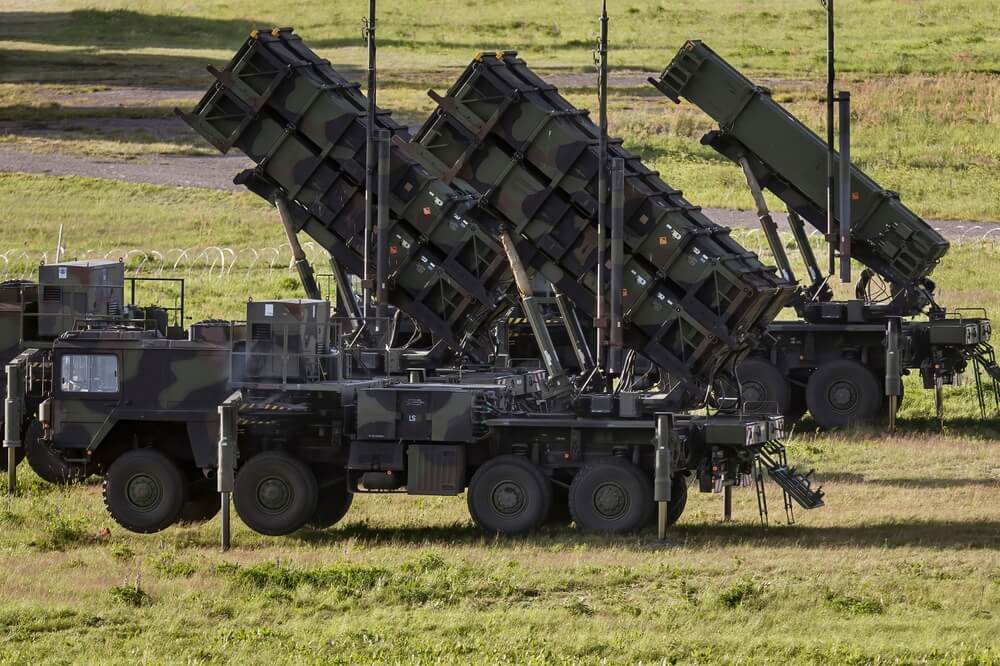Poland has spoken out in favour of a shared European anti-aircraft system, perhaps providing a decisive impetus for this project on which Europeans are finding it difficult to reach a consensus.
Prime Minister Donald Tusk announced that the partners supporting the European Sky Shield project will present their plans to the European Commission and the EU Council in the coming days.
He had previously signed a 300-million-euro loan with the European Investment Bank to finance Poland's commitments under the European Sky Shield Initiative (ESSI), effectively ending the controversy surrounding Poland's participation in this project.
With this decision, Tusk takes the upper hand in the internal controversy in Poland as to whether a joint European project is necessary for its defence plans or whether it should rely on its own forces and the support of its major non-EU allies, the US and the UK.
When it came to the country joining the ESSI, Poland's president, conservative Andrzej Duda, was the main opponent of pro-European liberal Tusk. The president persistently rejected the initiative, believing it to be a German business operation and not a shared security concept.
Hesitation of Europeans
However, President Duda, who belonged to the former Eurosceptic Polish government bloc, is not the only European leader to oppose a comprehensive European defence initiative.
With Poland's acceptance, 22 countries, including neutral Switzerland and Austria, have joined the European Iron Dome project, which is based on the Israeli model.
Germany launched the initiative in autumn 2022 in response to Russia's aggression against Ukraine as a concept for a shared European defence against air attacks, winning over 15 countries in the first wave.
Support for the European Iron Dome did not spread too rapidly
However, support for the European Iron Dome did not spread too rapidly. The hesitation was not due to the concept's inadequacies, but rather political and, above all, economic reservations.
Greece and Turkey achieved a significant breakthrough when they joined a project last February, and a particularly important signal was that they did so together, taking into account their territorial and security disputes.
But Poland's accession could be an even greater impetus for the continent-wide expansion of the ESSI.
Influence on the undecided
Donald Tusk's government has prevailed against those led by President Duda, thus demonstrating at the national level the nature of the conflict throughout Europe over the joint air defence project.
“Those most cautious and sceptical European leaders are beginning to understand that if we are serious about Europe’s security and military strength, we need to start from this dome, because then the European advantage over Russia – financial, economic and technological, will find its full expression”, said Tusk.
Poland's accession to the shared defence project is important because of its geographical location and proximity to Russia and Belarus
On the other hand, Poland's accession to the shared defence project is important because of its geographical location and proximity to Russia and Belarus, which are considered the main sources of the missile threat.
Poland's extensive military investments, especially since the start of Russia's aggression against Ukraine, have also made the country one of Europe's undisputed security leaders.
Their vote in favour of the shared European Iron Dome will therefore undoubtedly have an impact on other partners, particularly those who are still undecided.
France remains alone
With Poland joining the shared defence project, France remains alone—even isolated—in its opposition to the ESSI.
The technical concept of the joint project, which relied on the use of American, Israeli, and German anti-aircraft systems while excluding French anti-aircraft systems, clearly influenced its reservations.
 Poland will be able to exert pressure on the top management in Brussels, particularly the EU Commission, to provide financial support for equipping the joint air defence shield
Poland will be able to exert pressure on the top management in Brussels, particularly the EU Commission, to provide financial support for equipping the joint air defence shield
Following the Polish government's move, France is in a position to choose between several options in order to protect the interests of its strong military industry in Europe, even if none of them is ideal.
France could find an ally who could exert pressure on the inclusion of French-made anti-aircraft systems in the joint defence project in Poland, with its influence on Europe’s shared security plans.
After all, Poland will use part of the 300-million-euro loan from the European Investment Bank to finance its satellite and reconnaissance system, which it has developed in co-operation with France.
Poland will be able to exert pressure on the top management in Brussels, particularly the EU Commission, to provide financial support for equipping the joint air defence shield.
Polish Prime Minister Tusk has just announced that, together with Greek Prime Minister Kyriakos Mitsotakis, he will ask the EU Commission and the EU Council to cooperate on the ESSI project in the coming days. He also used the word "pressure" in reference to the high costs of procuring combat systems, which means the inclusion of EU funds in the financing of the shared defence shield.